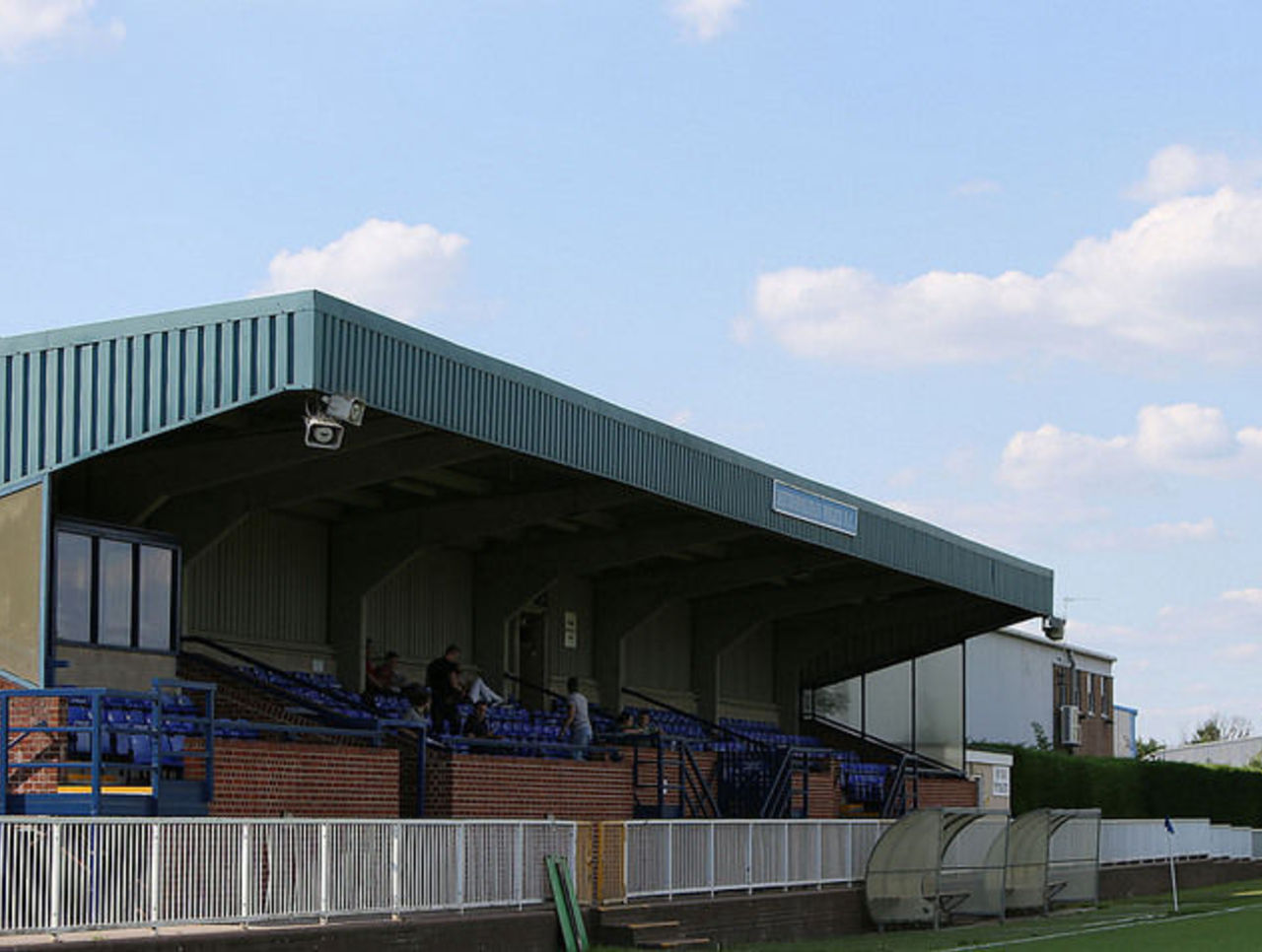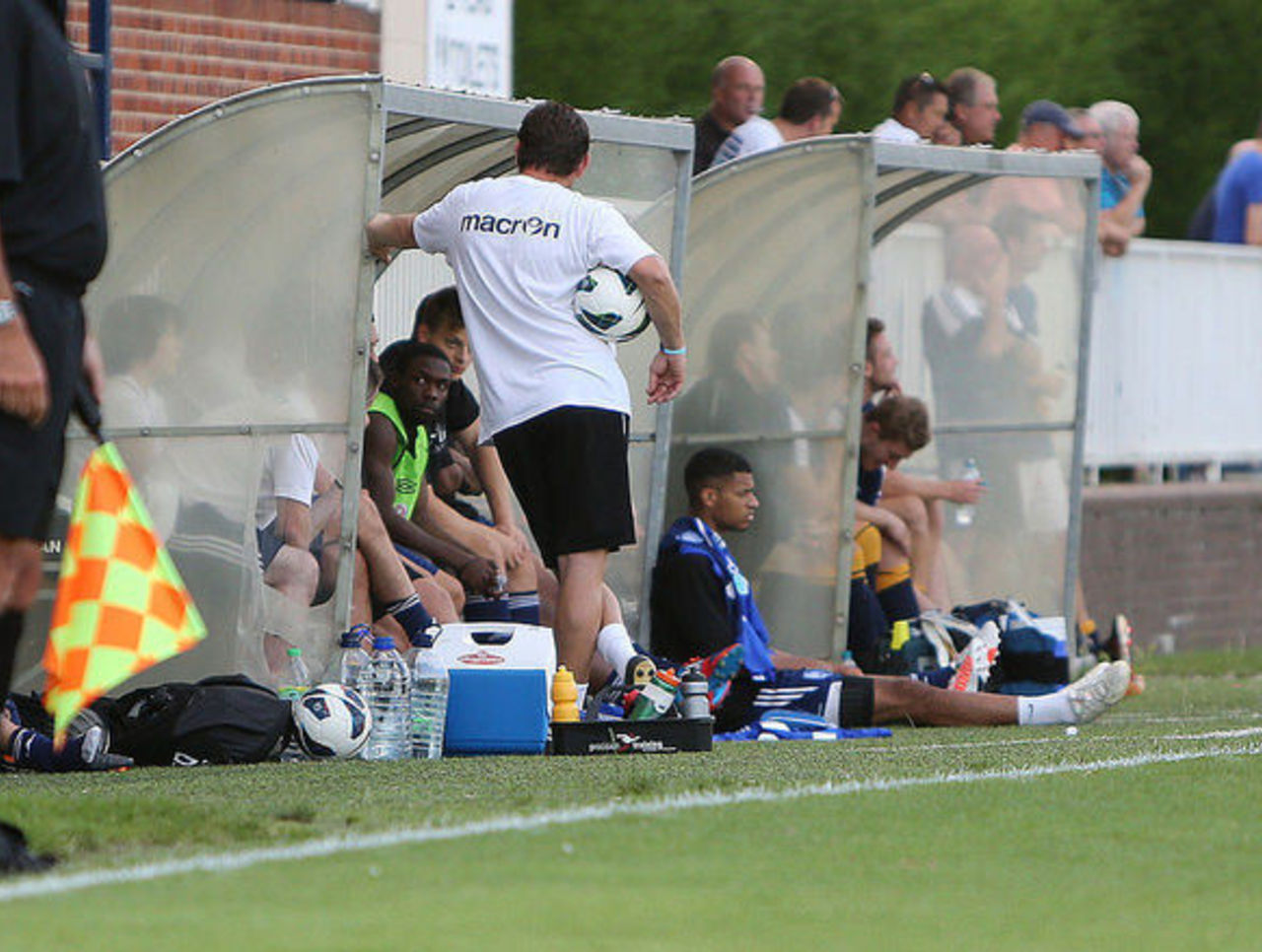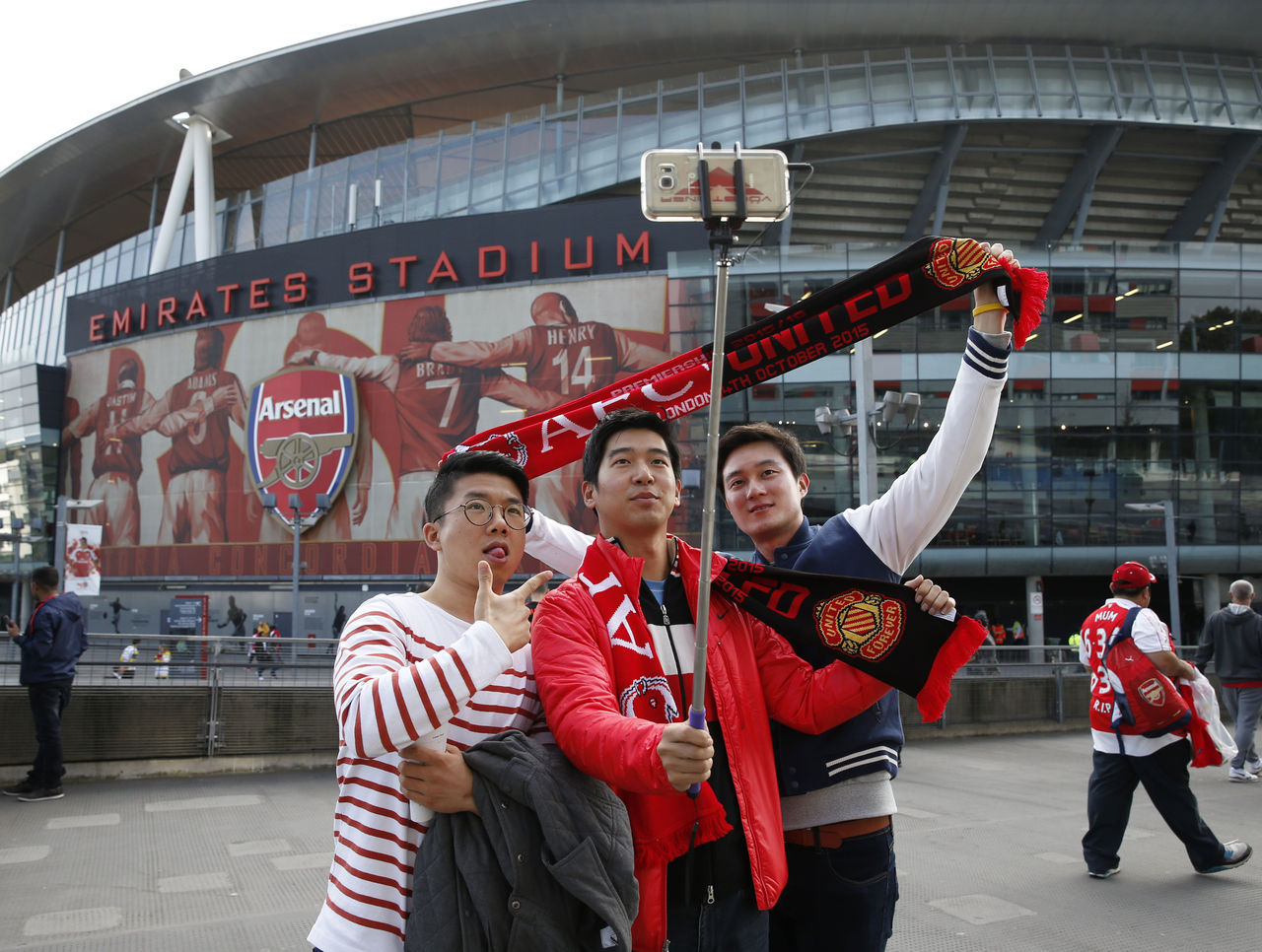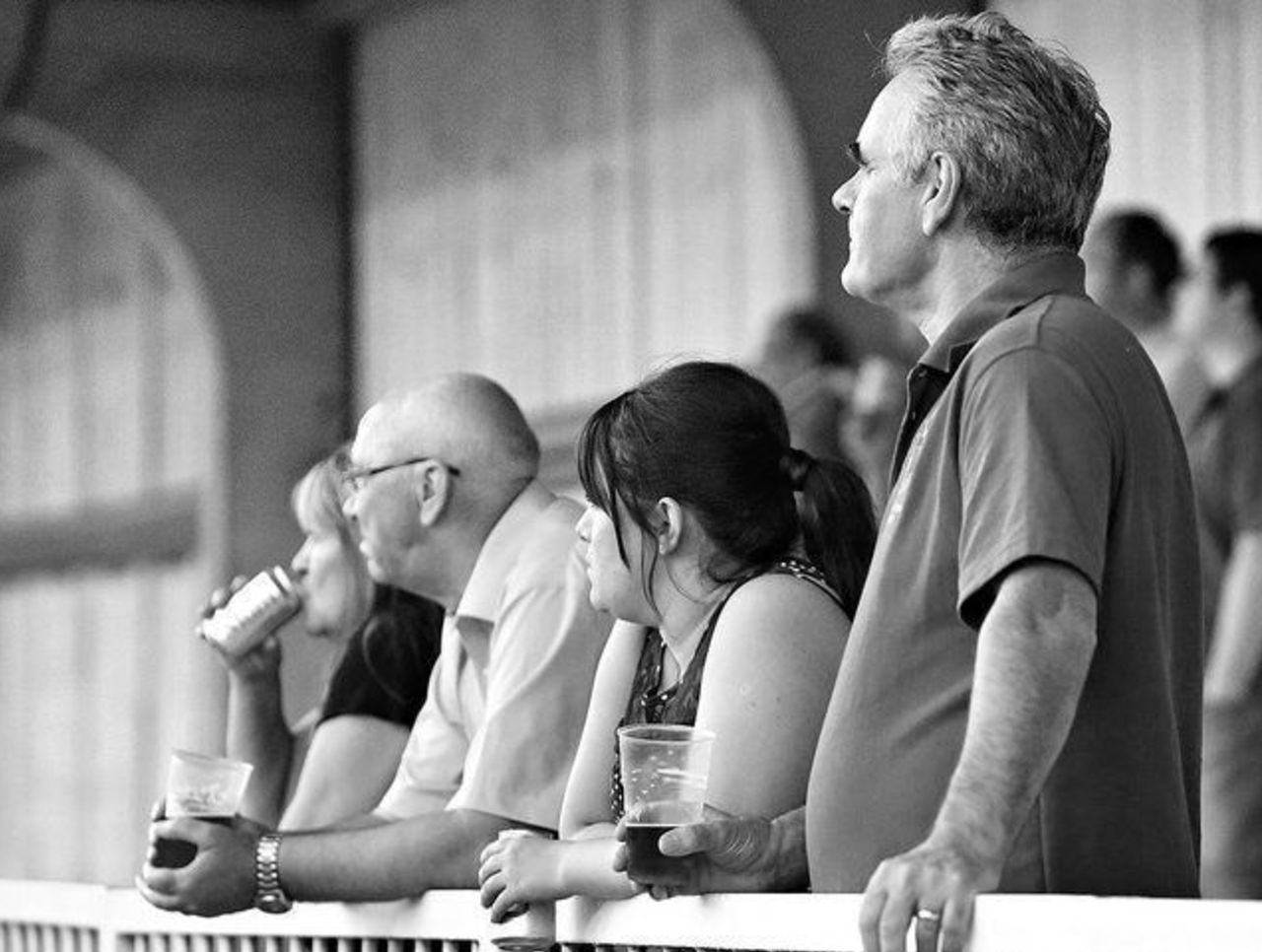How the Police upholds the true values of English football
The Metropolitan Police Football Club comfortably has the lowest attendance in Isthmian League Premier Division. The home support is often outnumbered by ardent seventh-tier away supporters enjoying a day at this markedly unpopular outfit.
Beyond the name, there are irrevocable ties to the local law enforcement. Hampton Court Palace stands nearby, a social club for police and their families is attached to the ground, and behind a goal are stables for police horses. The club plays in blue and the badge is a less glossier version of what local coppers don on their uniforms.

Unashamedly hipster newsletter Mr. Hyde tips the Met Police as a London club that could potentially reignite one's passion for football - rating it two flat whites out of five - and dubs it "the only place in the country you can legitimately hurl abuse at policemen without repercussions." That bobby-baiting isn't just confined to the terraces of Imber Court, though.
"We played at Dulwich Hamlet a couple of years ago and a very small amount of their fans started chucking sausages and shouting 'pigs.' I think that got a little bit too far," said Rich Nelson, a sergeant based in south-west London who edits the matchday programmes and runs the Met Police website.
Nelson and others involved with the club recognise the police force aren't popular, but there certainly isn't a sense of humour failure in East Molesey. The antithetically named ex-skipper Billy Crook posed for photos outside New Scotland Yard with a uniformed Ian Wright in 2014, when the Arsenal legend previewed the FA Cup qualifying rounds in his column for The Sun.

(Courtesy: The Sun)
Change of philosophy
Lower league journeyman Neil Barrett is the only policeman in manager Jim Cooper's squadron after joining a few months ago. In order to remain competitive, the Met Police allowed its first member outside of the police force - goalkeeper Stuart MacKenzie - in 2001, and by 2013 there wasn't one officer in the roster.
The lack of officers nowadays is mainly down to the austere measures of 2011, as the country's police dealt with job cuts and recruitment freezes due to the drab economy. Officers were no longer allowed time off to play competitive sport, making it harder for them to turn out for their work team. An injury sustained when representing the Met Police now means unpaid time off work.

Despite this change of philosophy, detective sergeant Cooper, who has been involved with the Met Police for nearly 25 years - 12 as a player, 13 overseeing the first team - still makes efforts to instill values perhaps not driven home at rival outfits.
"It could cause great embarrassment to the club should it be discovered that they are involved in criminal activity," said Cooper. "I actually ask them if they have had any criminal convictions and other questions relating to their background. After 25 years as a police officer I would like to think that I'm a good judge of character."
The club prides itself on the exploits of its newly expanded junior teams, with the dream of developing a player that gets picked up by one of the bigger clubs nearby like Brentford or Chelsea. It's already happening, with 17-year-old Tane Caubo being tempted by League Two's Barnet last autumn.
Our youth team prepare for tonight's FA youth cup 4th round game v @OfficialWolves @Comptonstars! @SoccerAM pic.twitter.com/lPC9zGXEQh
— Met Police FC (@MetPoliceFC) January 22, 2016
"Our youth team got to the fifth round of the FA Youth Cup and got knocked out by Wolves in January, and that was by far the furthest of any non-league team," Nelson added, noting the kids missed out on facing Fulham in the next stage.
Community
For Nelson, it was a disillusionment with the Emirates Stadium atmosphere that led him to the lower rungs of the English football ladder. He gave up his season ticket in 2015 after 21 years of watching Arsenal play home and away.
"You're treated more like a customer and everyone there's so angry all the time," he said. "People taking selfies - it doesn't feel like it's the Arsenal I grew up with.

"It's like a night at the opera really. People go to the gift shop and they go to the kiosks. It doesn't seem like any of it's about the actual football, instead all the fireworks and light shows."
With non-league football - Nelson also frequents Kingstonian and other local teams' matches - there's a feeling that the ticket fee is going toward something more worthwhile, rather than further lining the pockets of greedy club executives. A lower league ground also offers the opportunity to be a lot more involved, and to back players not motivated by avarice.
"They're not Gods wheeled in on thrones or anything. They're guys who park up in their Vauxhall Astras or they have to get the train across London for away games. They do it because it's a community and they want to be involved."
With its old work team background and renewed efforts into the grassroots game via the various youth teams, this small Surrey outfit epitomises the societal aspects of English football. Hurl sausages all you want, the Met Police is upholding the unwritten laws of the country's game - even if skipper Steve Sutherland is a web designer.
"We're proud of who we are - it's unique."

With special thanks to Rich for helping put this together, and the photography skills of Gary House.
HEADLINES
- Permutations in Europe: What's still at stake in final weeks of season?
- Mavs head coach Jason Kidd joins Everton's ownership group
- Latest transfer news and rumors: Villa consider De Bruyne pursuit
- 'Greatest-ever' Vardy to leave Leicester City at end of season
- Get ready for a party at Anfield as Liverpool look to clinch EPL title